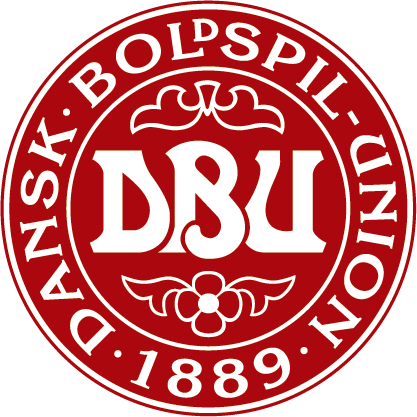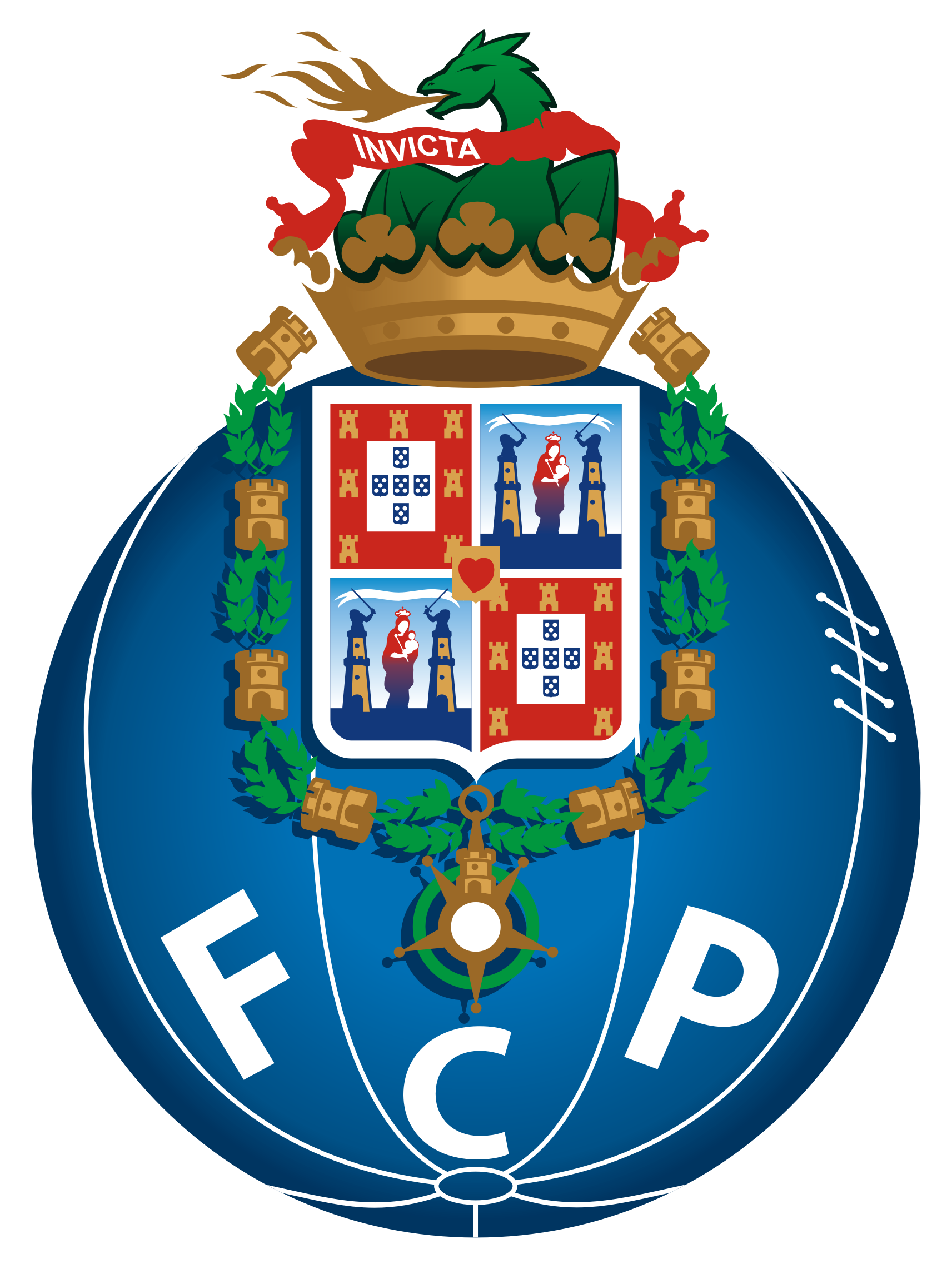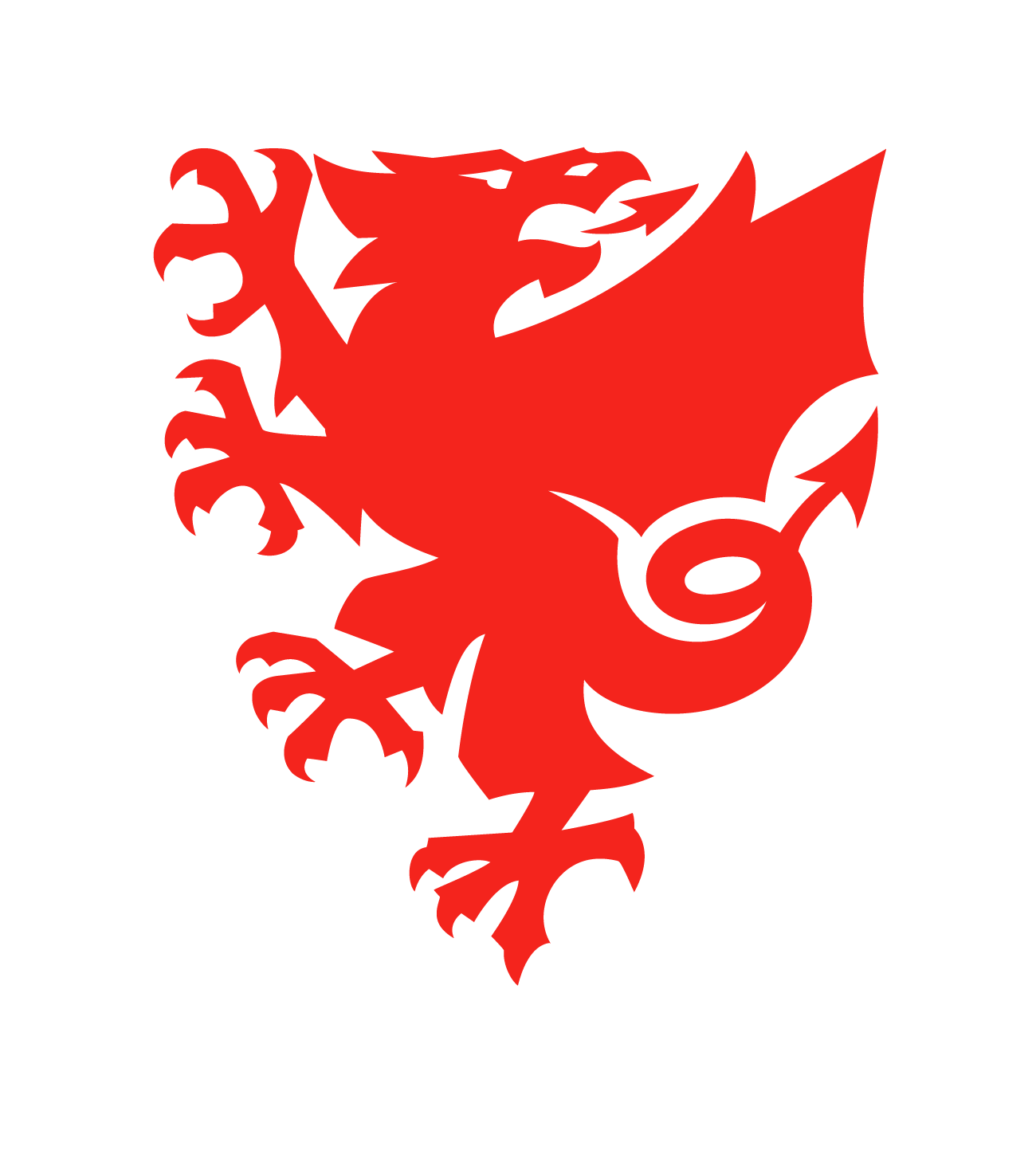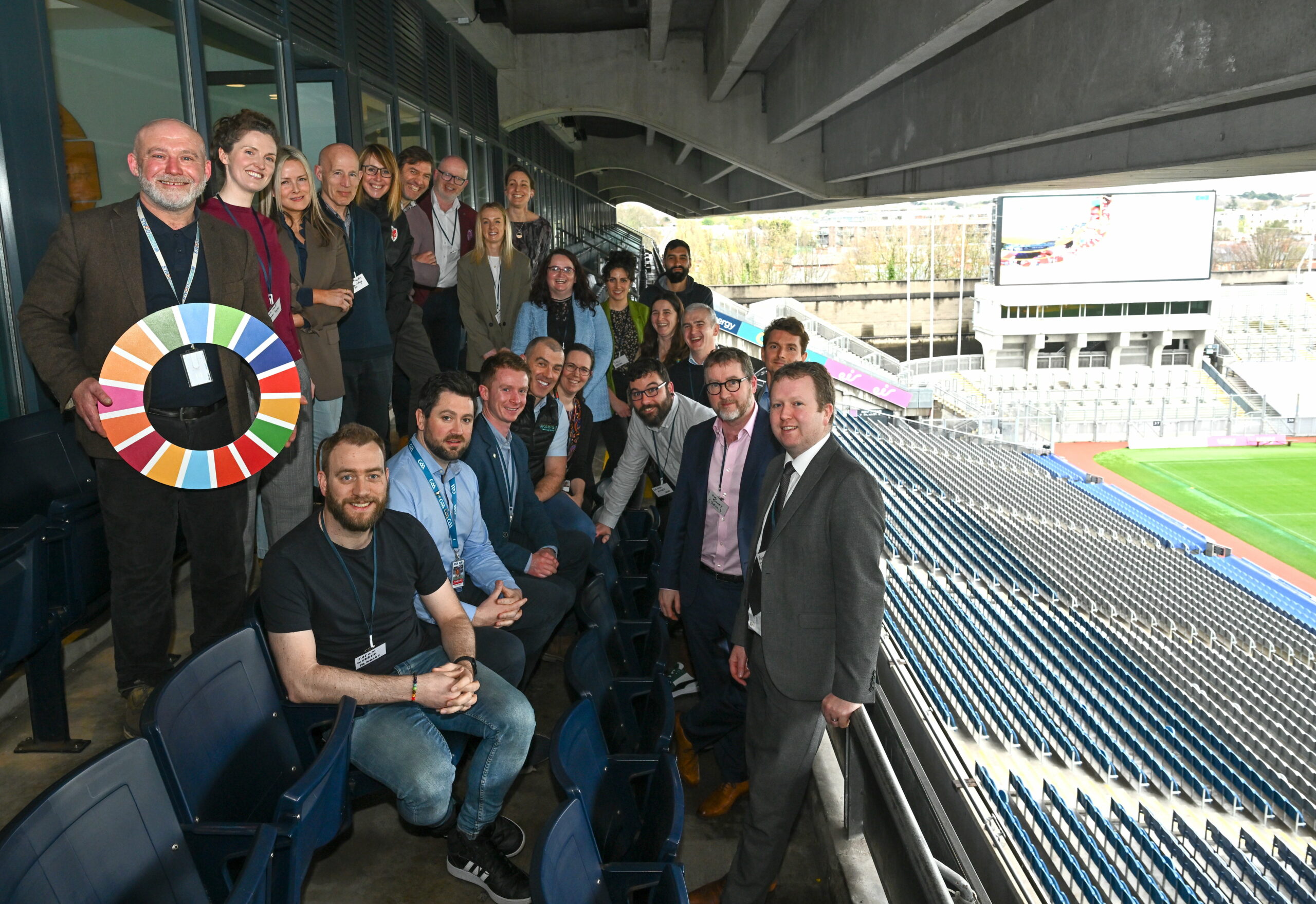Large and engaged audience at the GAA’s ACCESS conference at Croke Park on sustainability in sports and community engagement
Held under the name “Activating the Sports Sector for Sustainability”, the event gathered 40 participants and speakers as a part of a diverse motivational and inspirational day at the home of the GAA, Croke park.
The event saw representatives from the Irish sports sector as well as government, community and climate stakeholders, as well as individual practitioners from Ireland and abroad. Being all in one room allowed them to share and discuss challenges related to the climate crisis and its impact on sport and how to support communities to take action to improve the sustainability of the sports organisations they are involved in while at the same time reducing their own environmental impact.
The event came as the 3rd such local dissemination event of the ACCESS project after the ones held in Pisa and Porto, and perfectly coincided with the launch of the Community Engagement and Outreach phase of the project – a great occasion to put community work and mobilisation in the spotlight.
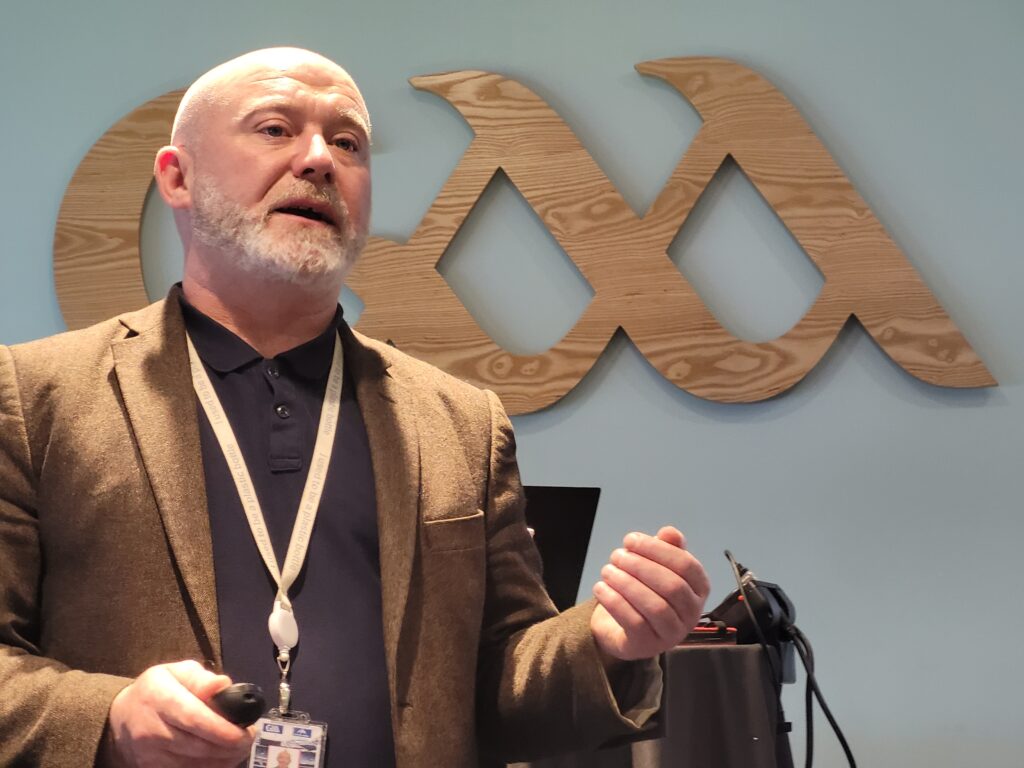
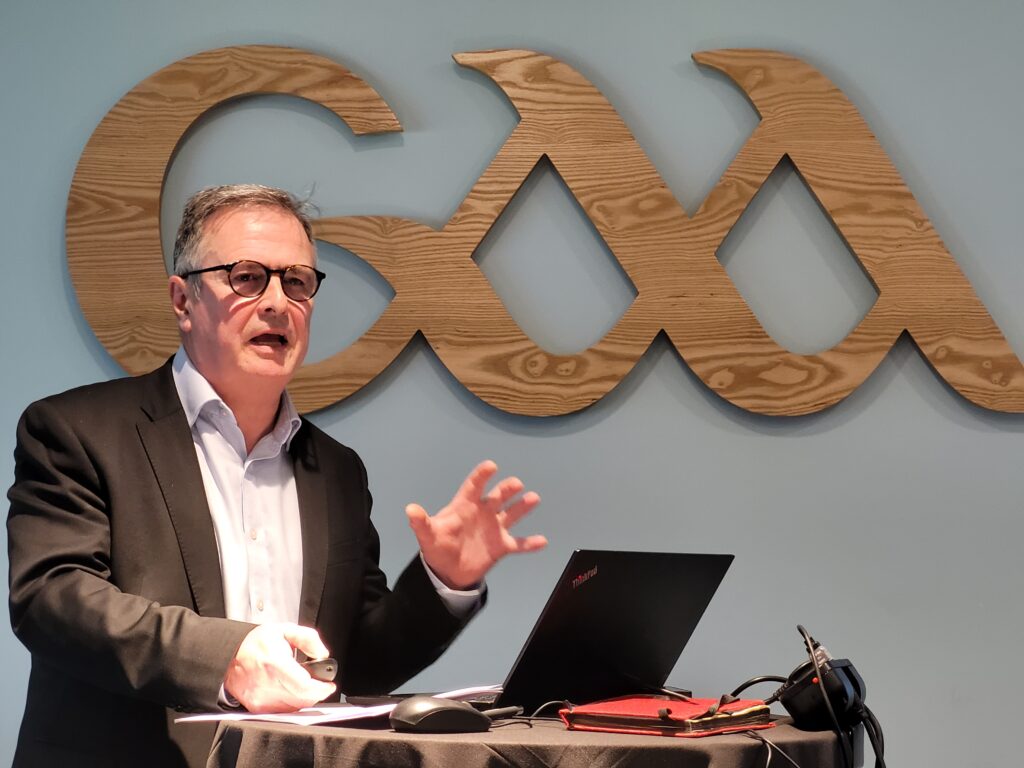
Facilitated by Jimmy D’Arcy of the GAA’s Community and Health department, the event was opened by Peter McKenna – Stadium & Commercial Director at Croke Park Stadium who welcomed the participants with his opening speech. He reflected on the history of sustainability and how it evolved into something that requires holistic and coordinated approaches. He reflected on the Croke park stadiums achievements and performances he was proud of and which they continuously want to challenge and improve. Beside a zero-waste stadium, locally sourced food under the brand new “50 Miles Menu” and other practices, the latest additions to the environmental portfolio are the water harvesting system and solar panels which would make Croke Park even more self-sustainable. To further explain the GAA’s efforts in greening sports across the island, Jimmy presented the GAA’s Green Club Programme which currently oversees some 200 GAA clubs and venues adhered to the programme and supports them in implementing various measures for improving their environmental performances.
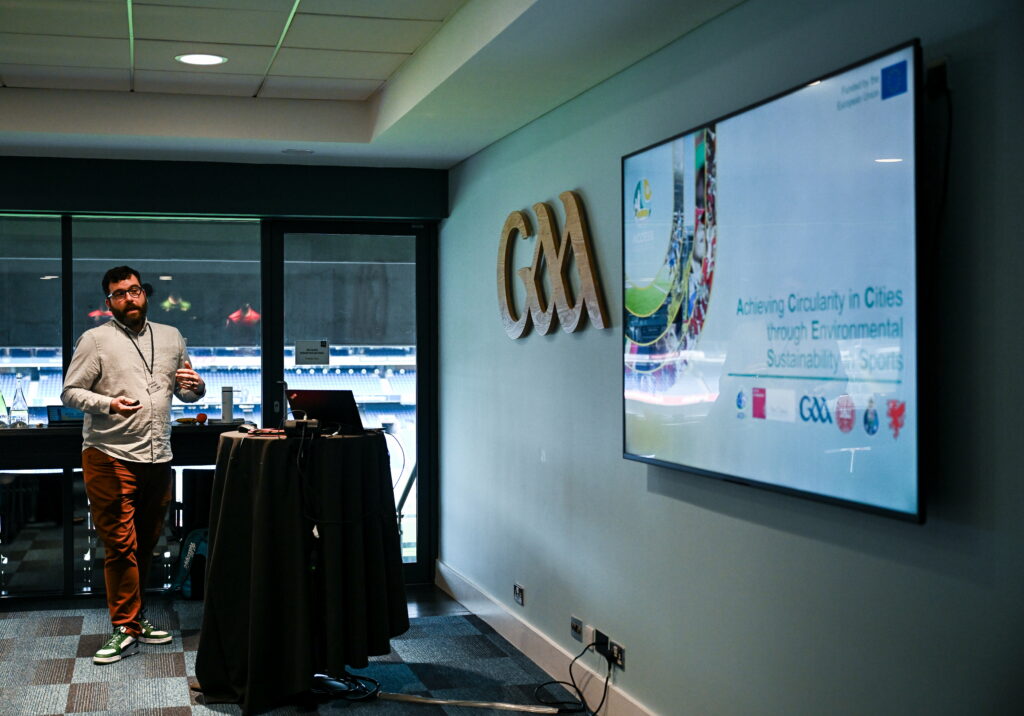
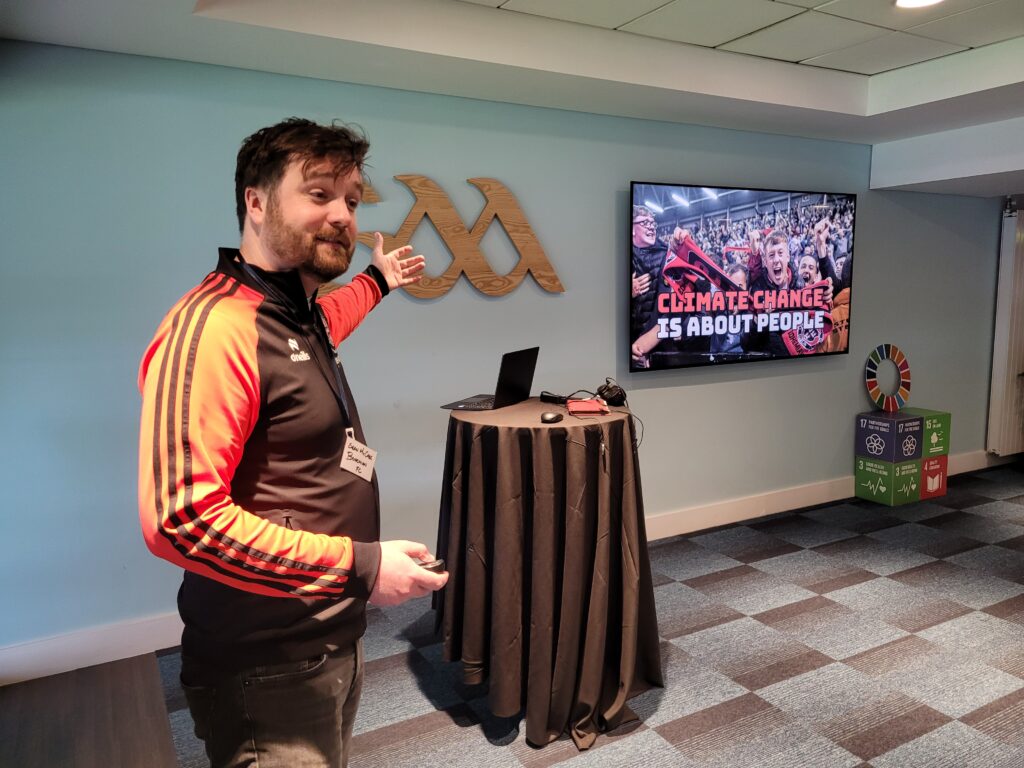
The following two insights, which perfectly complemented each other, provided some recent data on the the environmental impact of sports and how sport organisations are tackling those. Precisely, Ernest Kovacs, a project manager at ACR+ and the ACCESS project’s coordinator, provided some figures on current trends in environmental management in sports. The recent survey and interviews showed that a lot of sport organisations are starting with little steps, low-handing fruits, addressing aspects ad processes which can give instant results, often visible for a human eye, too, such as waste prevention, separate collection, elimination of single use plastic or imposing the same on contractors and caterers. What he highlighted as a challenge and currently a still rather untapped resource is the cooperation among various stakeholders among the sport value chain, especially between local and regional authorities, members, academia and the sport organisations themselves, which could innovate the environmental improvements and elevate the results, making the resources and efforts more worthwhile and contributing to a common good. This brought him to the ACCESS project which had exactly these observations and current state of play as an inspiration for for a project. he quickly walked the audience through the project and explained where the four participating sport organisations stand at the moment.
Seán McCabe on the other hand focused on the club members, supporters and visitors and the environmental impact they have and the great potential for decreasing it through community engagement and behaviour change. Being the Climate Justice and Sustainability Officer at Bohemian FC, he is certainly creating a revolution in the way sport organisations can influence behaviours and allow their supporters to become a part of a joint initiative. The club’s climate cooperative “The Spark” wants to work with community partners, local businesses, and some big institutions to bring a cooperative spirit to local climate action for a just future. After all, Seán said that climate action and measures should not be imposed on people but rather allow them to develop their own climate identity.
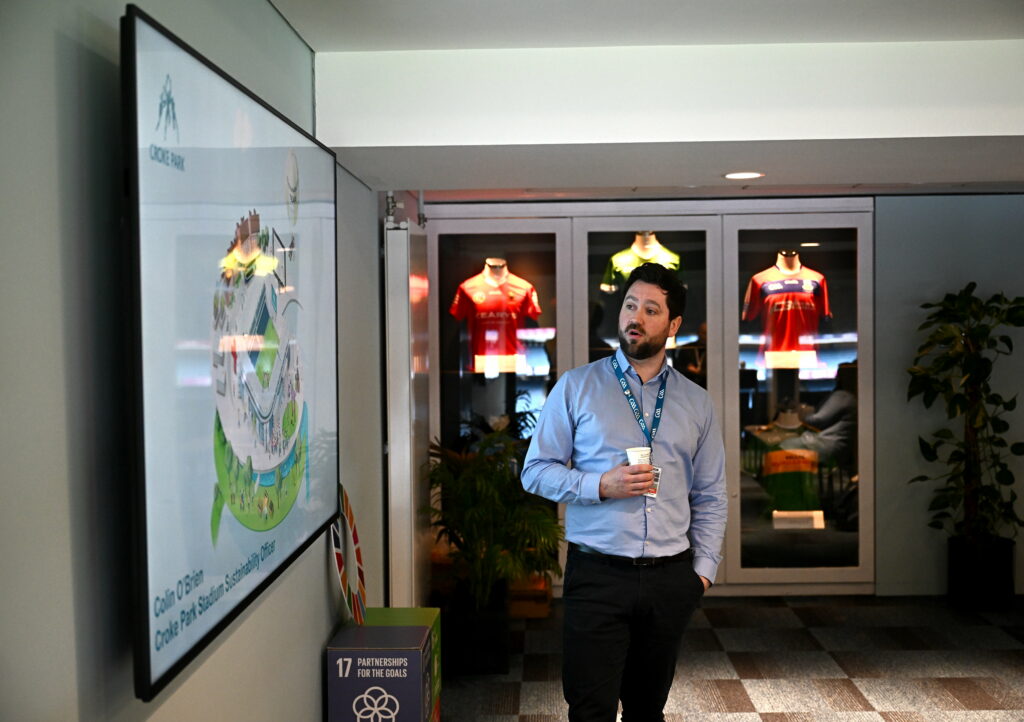
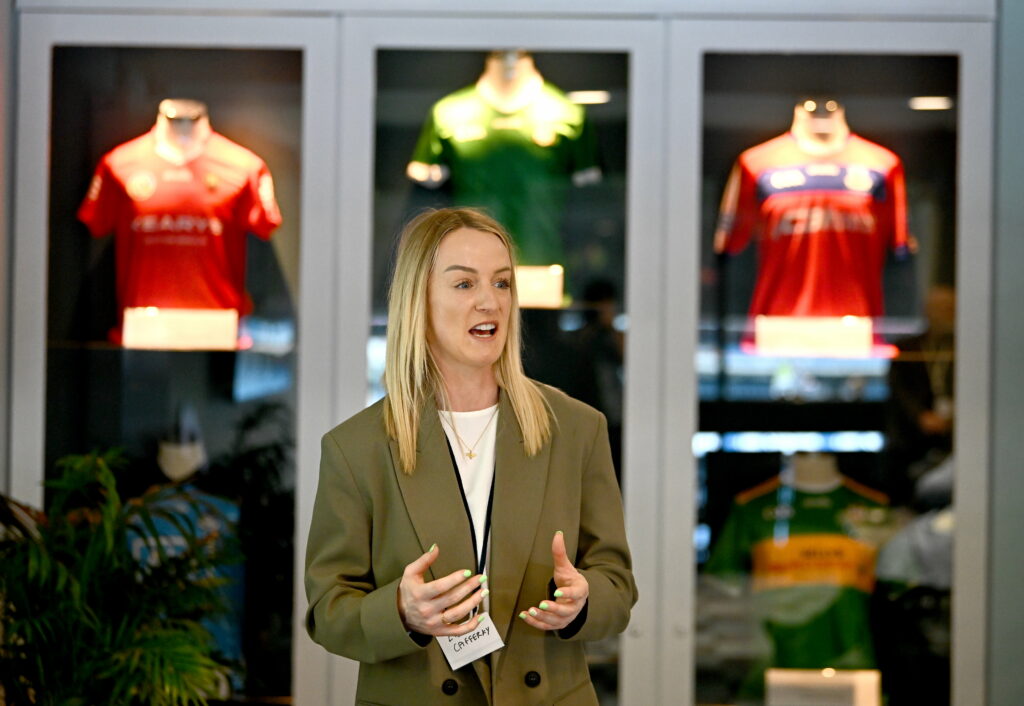
The event continued with a Q&A session moderated by Jimmy D’Arcy with an active involvement of the audience. The two speakers were Colin O’Brien who oversees all the sustainability related projects at Croke Park and Lisa Cafferky, a Student Sport Pathway Manager at Trinity College.
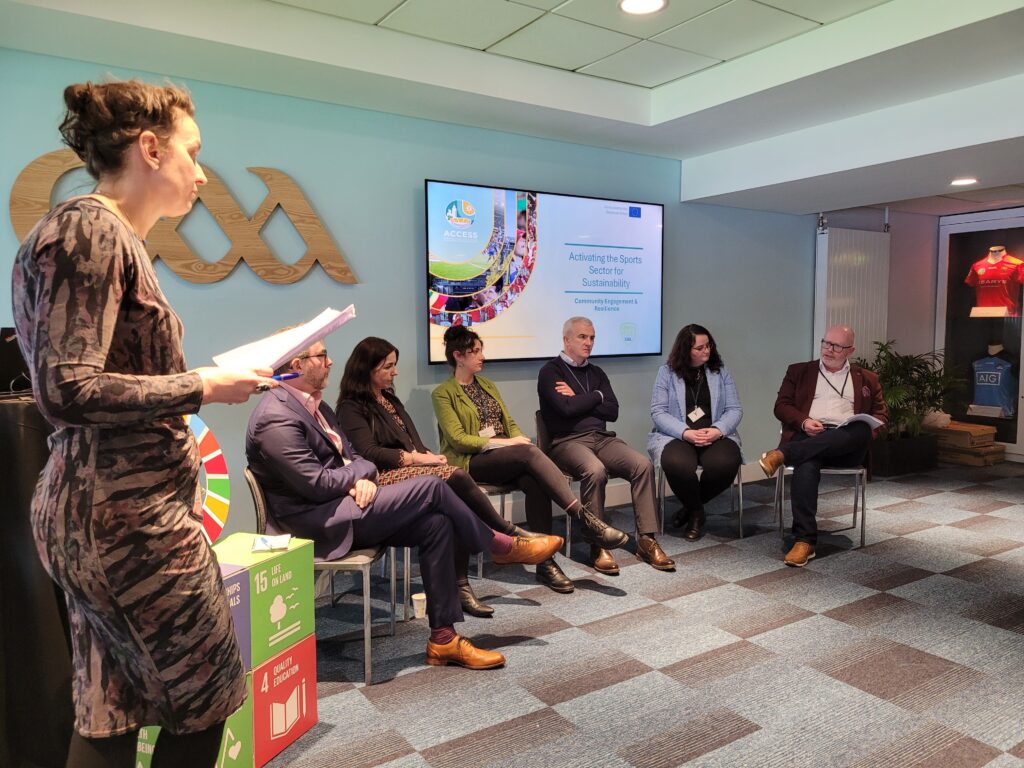
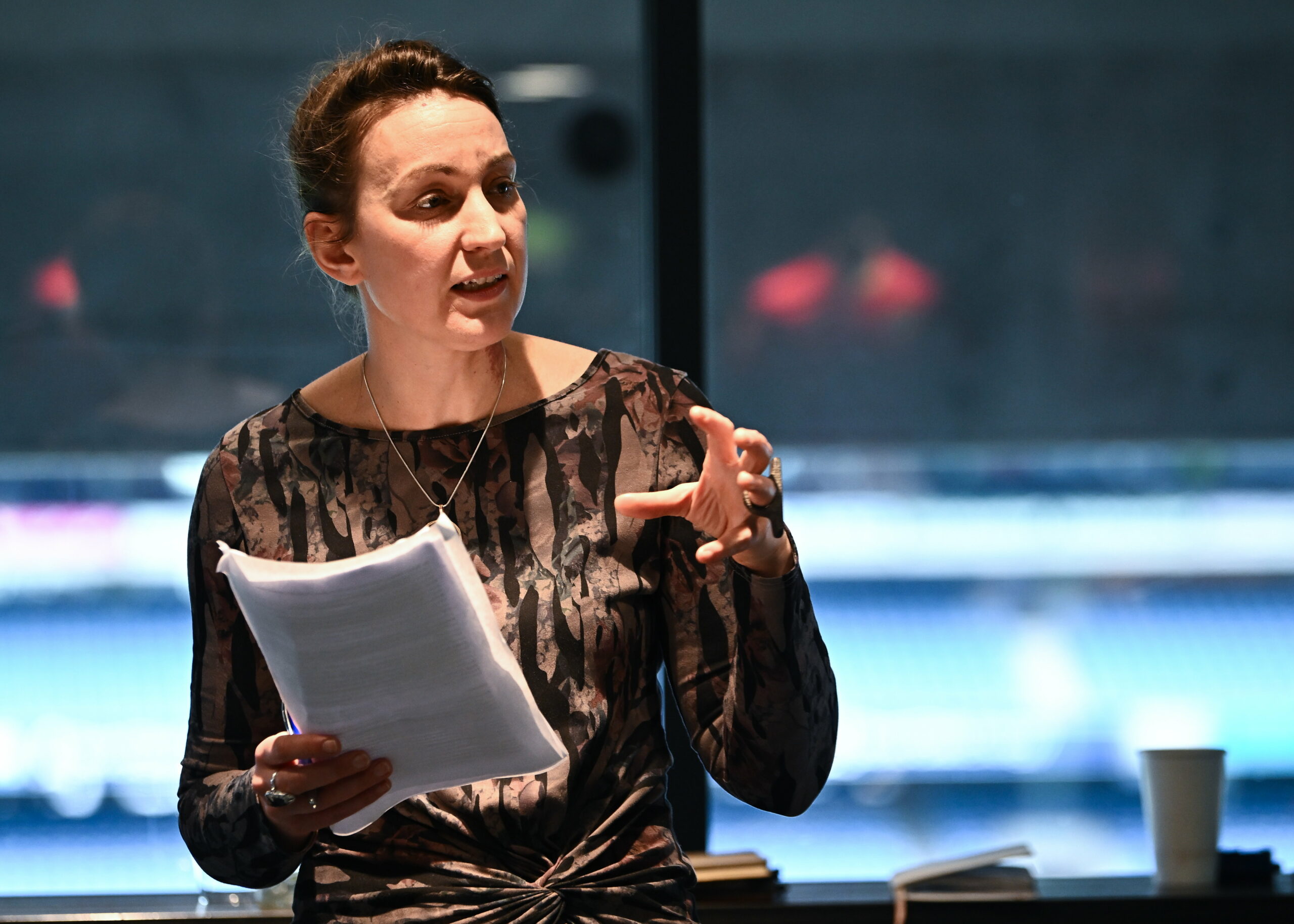
Finally, an interactive session closed the morning in form of a panel discussion, moderated by Míde Ní Shúilleabháin, GAA Green Club Sustainability Advisor. The panellists included some of the leading practitioners and experts in community engagement and community work in general, as well as circular economy, namely Dr Robert Mooney – Aarhus, Climate Adaptation, Citizen Engagement and Local Government Division, Department of Environment, Climate and Communications (DECC), Elaine Nevin of Eco-UNESCO, Roisin Greaney – Researcher and Community Engagement Coordinator – Climate Justice, TASC – Ireland’s Think tank for Action on Social Change, Padraig Fallon who currently sits on the GAA Green Club Steering Group as chair, Louise Bourke of Sport Ireland and Hugh Coughlan, the Regional Co-ordinator of Eastern-Midlands Region Waste Management Planning Office and ACR+’s Vice-President.
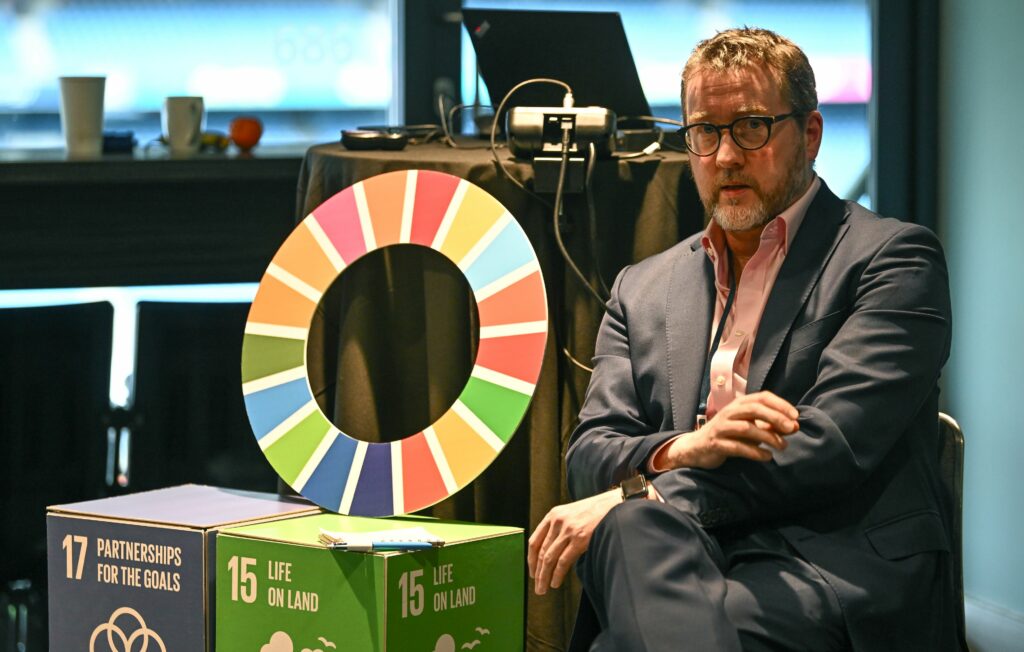
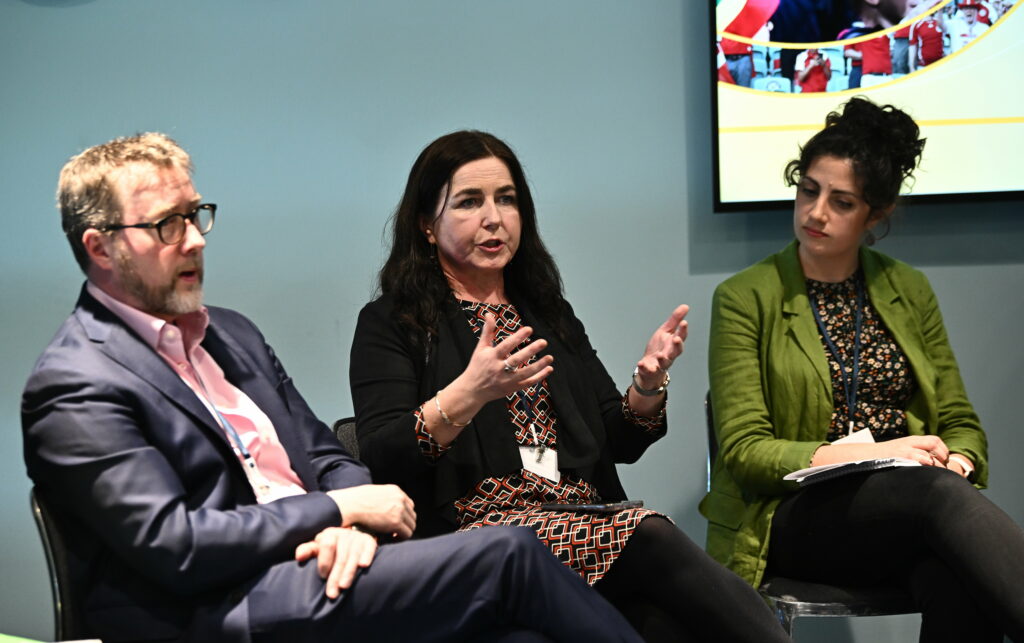
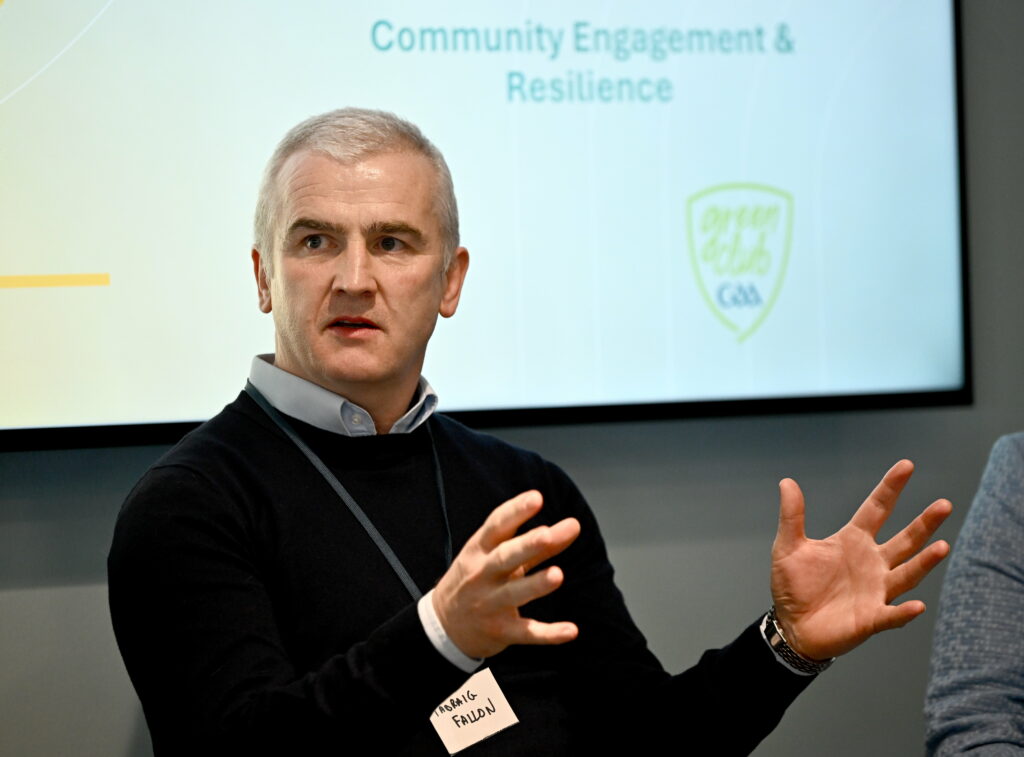
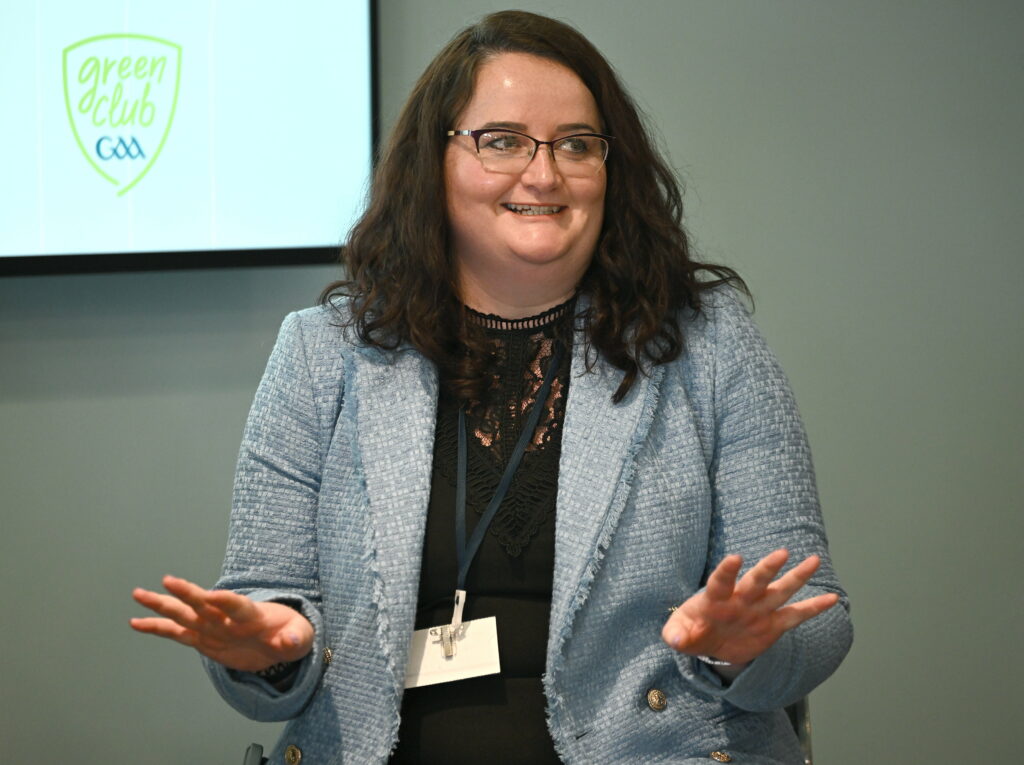
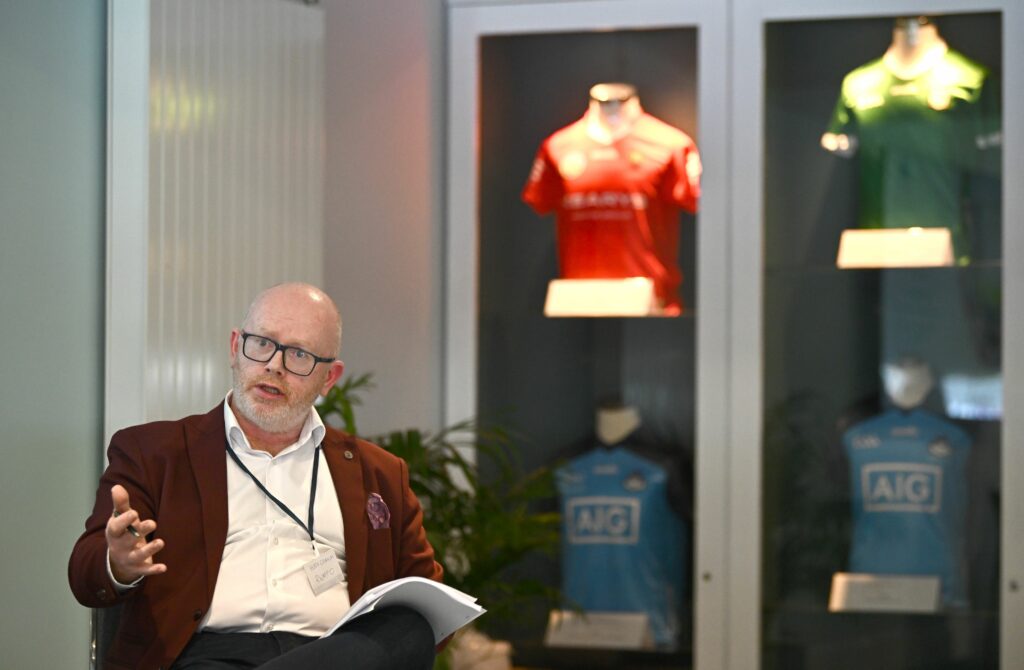
This panel, full of expertise and skills, discussed some of the key challenges when it comes to community engagement. Roisin Greaney highlighted those such as reaching out and involving disadvantaged, rural and remote communities, or single parent families. Other challenges included skills and capacities needed for the transition towards circular economy and sound environmental management in sports. It was agreed that those sport organisations who are frontrunners in those fields need to share their learnings and tools, because it is difficult to expect from smaller federations to advance solely on their own. Hugh Coughlan also mentioned the new all-Ireland Waste Strategy, recently adopted, as an example of a consultation exercise in which the GAA took part, too. Dr Robert Mooney on the other hand said that DECC took seriously this initiative and decided to label the coming year as the year of community engagement – certainly a great added value for the ACCESS project.
To finish, the best conclusion one could think of came from the audience – “We need to take advantage of this momentum; there is so much power, skills and tools in this room which many sport organisations could benefit from”.










